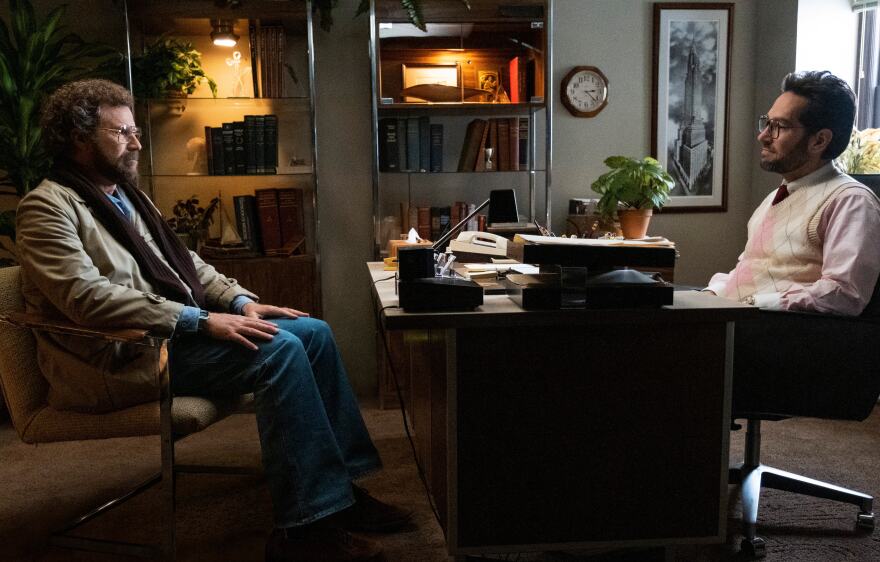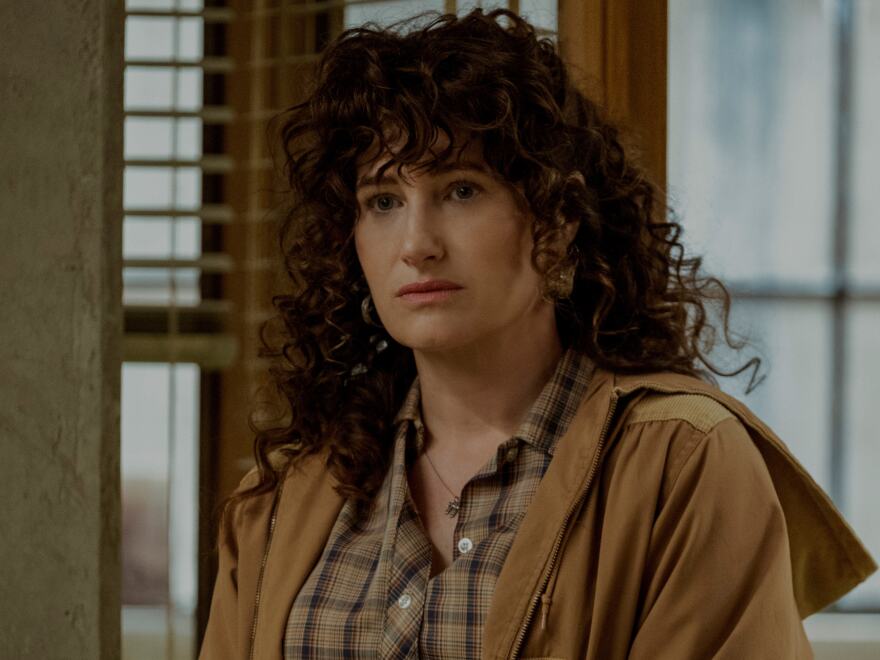Every so often, a piece of television comes along that – despite a great pedigree and lots of stars – feels more like an acting exercise than a touching, emotional story.
Unfortunately, even with the best efforts from big names like Will Ferrell, Kathryn Hahn and recently crowned Sexiest Man Alive Paul Rudd, Apple TV+'s The Shrink Next Door falls in that category.
The premise is pretty simple: Based on a podcast by Wondery and Bloomberg Media, this limited series tells the story of Martin "Marty" Markowitz, a nerdy, underconfident heir to a middling fabric business who winds up consulting a therapist recommended by his sister's rabbi: psychiatrist Dr. Isaac Herschkopf.
What happens next is a little more complicated. Herschkopf, who insists on being called "Dr. Ike," eventually worms his way into Markowitz's life so deeply, he gets his patient to support him financially in a myriad of unethical ways. Dr. Ike overbills him, serves as a consultant at the fabric business and essentially takes over Marty's summer home in the Hamptons, throwing parties where the therapist poses as the homeowner.
The result is a dark dramedy that feels light years' removed from the cartoonishly fun satire of the Anchorman films Rudd and Ferrell have made together. But it's an effort that also amounts to less than the sum of its ambitious parts; intriguing moments of acting and casting that somehow fail to reveal a surprising or enlightening tale.

Great performances serve a predictable story
Ferrell plays Marty as a conflict-averse geek with a New York accent that often comes across as a toned-down Woody Allen impression. Conflicts at work or with a former girlfriend bring panic attacks, and his loneliness is so acute, it's palpable.
Rudd embodies the predatory therapist as a glad-handing status seeker eager for a shortcut to the trappings of a successful life. For him, the elements of Marty's fragile neediness are like gigantic welcome signs, highlighting someone with wealth who can be easily manipulated, isolated and exploited.
It all sounds like a scenario ripe for deeper exploration. Does Dr. Ike always intend to exploit his patient in the way he eventually does, driving a wedge between Marty and his sister, played by Hahn?
Why would a reasonably smart guy like Marty spend so long — nearly 30 years — in such an exploitive situation? What about Dr. Ike's other patients or his wife, played with studied exasperation by an underused Casey Wilson? Why didn't they sound an alarm?
With eight episodes, The Shrink Next Door has plenty of time to cover this ground. But instead, we get too much energy spent on things we can already predict – like a moment where Dr. Ike talks Marty into spending over $100,000 to create a charitable foundation, complete with a checkbook either one of them can use.
Easy to see where that setup is going. But we spend lots of time watching it unfold, anyway.
The show's treatment of Jewish characters
Nowhere is the superficiality of The Shrink Next Door more obvious than in its treatment of Jewish characters and Jewish culture. Jewishness is a huge part of the story – a pivotal moment for Marty comes when Dr. Ike convinces him to re-enact his bar mitzvah as an adult, completing the rituals he didn't have the confidence to finish when he was 13 years old.
But Dr. Ike turns Marty's ceremony into an event filled with his own acquaintances, invading a patient's private affairs in a way that was self-serving and highly unethical. It was a telling way of depicting how Dr. Ike distracted Marty from his own exploitation, but didn't say as much about how the therapist weaponized their shared culture to make the bond stick.
In describing this superficiality, some may reference a concept comic Sarah Silverman has called "jewface" – a term for TV shows and films casting people who aren't Jewish to play characters for whom Jewishness is an essential element of their lives.
In its modern form, this practice isn't quite like blackface, which has a long legacy of enabling white performers to portray Black people as stereotypically lazy, unintelligent or dangerous. Instead, there's a question of fairness and authenticity; is it fair to cast someone who isn't Jewish in such a role, particularly if they don't seem to authentically inhabit the character?

Neither Ferrell nor Hahn is Jewish, though Hahn has excelled at playing people who are, including a rabbi on Amazon Prime Video's hit dramedy Transparent.
But Ferrell, especially, stands out as an actor who looks nothing like the real man he is playing, offering a take on the character that doesn't feel particularly transformative. We've seen him play sad, damaged men before; this time, he does it with a bit of an accent.
It's the end result of a limited series which, despite its length, too often hints at ideas which deserve deeper scrutiny.
Much of The Shrink Next Door feels like a missed opportunity – a chance to tell us more about a bizarre, exploitive relationship that unfortunately became an excuse for two well-known stars to flex their acting chops in an unexpected venue.
Copyright 2023 NPR. To see more, visit https://www.npr.org.




